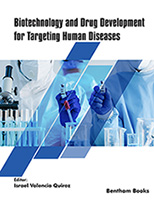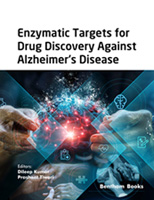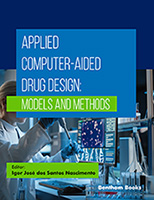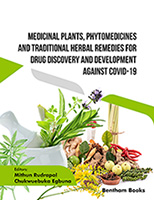A variety of cancers are known to originate in epithelial structures and require stromal support to become invasive. This dual mechanism is applicable to nearly all types of cancer. Further growth needs neoangiogenesis, a tumor dependent proliferation of vascular vessels to overcome hypoxia and subsequent growth stop. Metastasis, a common feature of cancer, needs stromal factors and neoangiogenesis as well. Continuous interplay between cancer cells and stroma is a prerequisite for invasion and expansion. Elucidation of neoangiogenic pathways may lead to therapeutic measures; those that convert a progressing cancer into chronic disease, offering a reasonable alternative when cure with classical drugs becomes remote. Other diseases can be approached similarly, including age-related macular degeneration and even therapeutic angiogenesis to treat ischemic disorders.
The concept of targeting neoangiogenesis to inhibit tumor growth has been proposed for a number of years and several approaches to block or disrupt tumor neoangiogenesis have been widely explored. Nowadays it is one of the most intensively studied areas in oncological research. This book will provide a substantial overview of contemporary applications, research and hope. Before going into various types of cancers, like cancers of the lung, kidney, breast, prostate as well as multiple myeloma, gastrointestinal cancer, and Schwannoma, the book will present the latest findings in molecular biology of vessel formation and related processes. The combination of pathways provides opportunities for novel therapies that are extremely welcome in future oncology
When transformed cells escape control, a large number of metabolic steps need to be taken before effective cancerous growth can be expected. Among these is protection against immunological resistance, hypoxia, local inhibiting growth factors etc. Angiogenesis is another dynamic feature of invading cancer. The formation of new blood vessels is a complex, multi-step process, where endothelial cells play a pivotal role.
The role of angiogenesis in renal cell cancer has been tremendously explored because contemporary treatments fail to provide efficient tumor control. Systemic cytokine therapy is rather disappointing but remains nevertheless standard of care, so far. New research points to angiogenesis and novel types of protein kinase pathways that regulate cell growth, proliferation, motility, survival and transcription. Clinical assessment of these local phenomena is a matter of passionate research that needs adequate tools and standardization.
Anti-angiogenic therapy for breast cancer has entered clinical routine in 2008. But many companies are exploring similar approaches and some will be ready in a few years from now. Breast cancer is a rather slow progressing disease once metastasized. As is the case for hormonal treatments, anti-angiogenic therapies can convert the malignancy in a chronic disease. It is no surprise to find lifestyle factors being involved in the angiogenic process providing opportunities to retard the disease. Several foods have direct effects on stromal acceptance and resistance towards cancer invasion and growth. Some of these factors may play a critical role in prevention as well. For therapy, novel targeted molecular therapy and in particular anti-angiogenic agents, are being investigated in numerous clinical trials
Prostate cancer continues to be a challenge for oncologists. Controversy about the initial approach and treatment of hormone resistant cancers lead to attempts to novel targeted therapies. Special emphasis is given to the role of specific tumor-associated antigens and related therapeutic targets. Special attention is going to tumor growth factor beta signaling as treatment target in advanced disease.
Multiple myeloma has become a treatable disease for a number of years now. The bone marrow microenvironment is considered the best target; even from early stages. A wide variety of new compounds target this area. New minimal invasive tools provide opportunities to study surrogate markers that will shorten the investigational period and individualize therapies for tailoring patient's needs.
One of the first applications of anti-angiogenic treatments was colorectal cancer because this entity expresses elevated levels of vascular endothelial growth factor. Recent attention has been given to hepatocellular cancer. Downstream pathways of the vascular endothelial growth factor receptor are in the focus of contemporary research. Gastric cancer remains another therapeutic challenge, in particular for advanced stages. Molecular targeting agents, like those aiming at the angiogenic cascade, show promise.
Lung cancer, the most lethal cancer world-wide, cannot escape research on pro-angiogenic signaling. Although gene therapy with viral vectors continues to be promising, anti-angiogenic factors can provide a valuable addition to cytotoxic and local therapies.
A chapter is devoted to the role of over expressed receptor tyrosine kinase signaling pathway in schwannoma providing an excellent target for disease control
Drug development is a multi-step process that includes basic research, patent validation, extensive and long-lasting clinical trials, registration, reimbursement and commercialization before the patent protection ends. In some instances and countries, commercialization even fails to start before patents close on protection. Drug development is not only extremely expensive but also risky. Hence the need for shortening the developmental process and a way to achieve this is the search for surrogate markers of anti-angiogenic processes and therapy outcome. One of the most obvious options is non-invasive imaging and minimal invasive tools, detection of circulating angiogenic substances and activated endothelial cells to be considered. A critical assessment of these surrogate markers and how they can be retrieved is an essential part of drug development.
A plethora of angiogenesis inhibitors are currently subjected to clinical trials while a few of them have been approved for clinical use. The drugs can be divided into several categories, including growth factor inhibitors, endothelial cell signal transduction inhibitors, inhibitors of endothelial cell proliferation, inhibitors of matrix metalloproteinases, and inhibitors of endothelial cell survival. For practical purposes, two groups can be remembered: those that inhibit a number of growth factors and those that inhibit breakdown of the basement membrane and extracellular matrix. Unlike tumor cells, tumor associated endothelial cells seem not to develop resistance to anti-angiogenic agents. Furthermore, anti-angiogenic agents are generally cytostatic rather than cytotoxic. Finally, they are considered well-tolerated.
Because antiangiogenic therapy is unlikely to induce tumor regression, the criteria for efficacy must be evaluated by means other than the standard response criteria used to evaluate cytotoxic chemotherapy. Further, the redundancy of molecules responsible for the angiogenic process suggests that it is unlikely that a single antiangiogenic agent will provide prolonged inhibition of angiogenesis. Nevertheless, the understanding of the basic principles that drive tumor angiogenesis will lead to the development of therapies that will likely prolong survival without the toxicity associated with standard chemotherapy.
Jaak Ph. Janssens MD, PhD
Oncologist
Editor-in-Chief of European Journal of Cancer Prevention
&
President of European Cancer Prevention Organisation
University of Limburg
Belgium, UK





